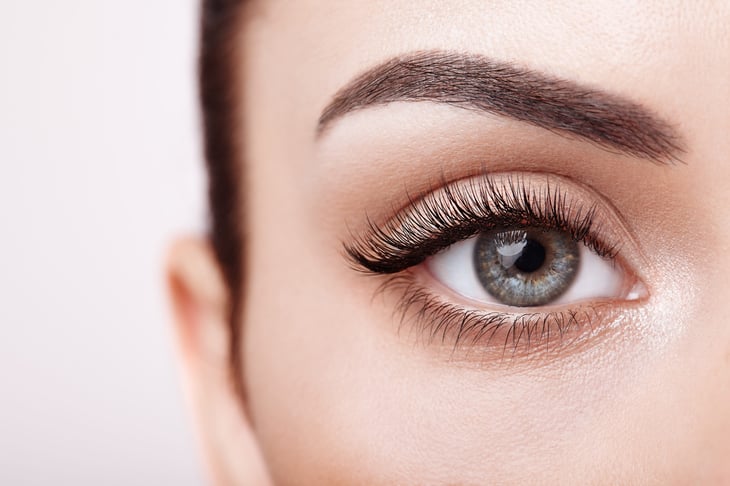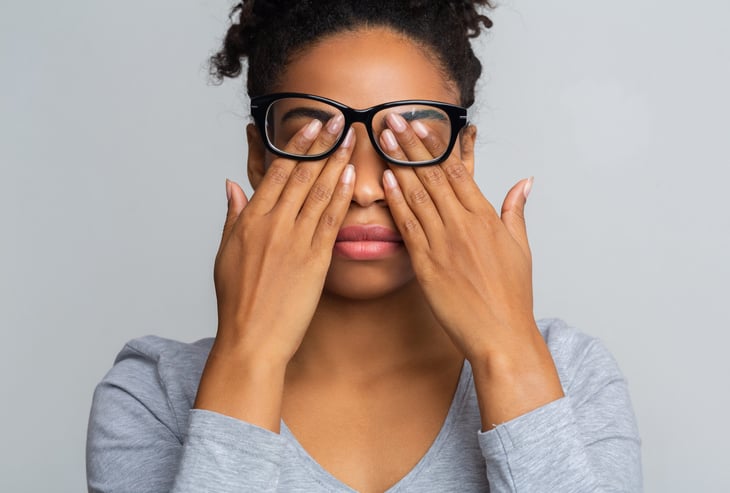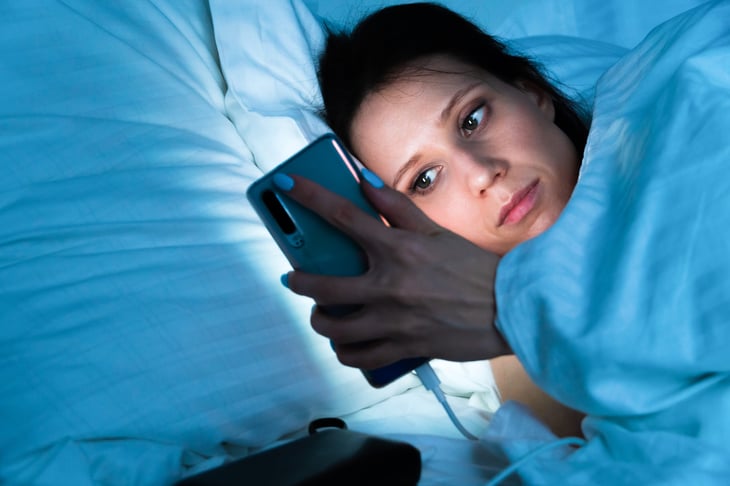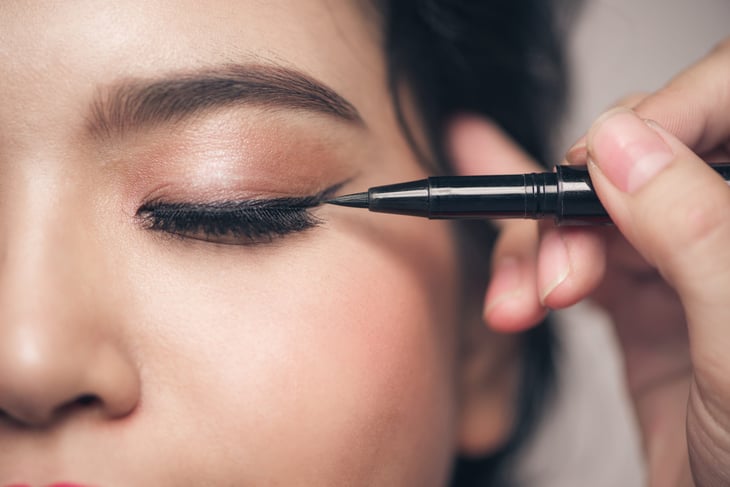
Your peepers are precious. They help you to see the world around you, from appreciating a beautiful sunset to spotting a car that is about to run a red light.
You only get two eyes, so you want to take care of them. Unfortunately, there are things you do every day that can damage your vision.
Following are some dangerous habits you should avoid to keep your vision safe.
1. Not eating the right diet

What goes in your mouth can have a big impact on your eyes. The American Academy of Ophthalmology says foods rich in vitamins C and E, zinc, lutein, zeaxanthin, and omega-3 fatty acids can lower your risk of age-related macular degeneration, cataract, and possibly dry-eye syndrome later in life.
The academy recommends the following foods:
- Vitamin C. Foods with a lot of vitamin C are oranges, grapefruit, kiwifruit, strawberries, tomatoes, red and green peppers, and broccoli.
- Vitamin E. Healthy sources of vitamin E include almonds, sunflower seeds, olive oil, and avocadoes.
- Zinc. Legumes (beans and lentils), seeds, meat/seafood, dairy, and eggs are all good sources of zinc.
In addition, foods rich in lutein and zeaxanthin — two nutrients naturally found in the retina — can help the health of your eyes. Foods with these nutrients include leafy green vegetables as well as colorful fruits like raspberries, papaya, peaches, and mangoes.
For more on eating the right diet, check out “Avoiding These 5 Foods Could Save Your Vision as You Age.”
2. Rubbing your eyes

Some of us rub our eyes when they itch due to allergies. Others do it simply out of habit.
But rubbing your eyes can be more harmful than you might think. The bacteria on your fingers can create an infection in your eye. Frequent or vigorous rubbing also can damage your cornea, the tissue that covers your iris.
In fact, rubbing the eyes is thought to be a major contributor to a vision-damaging condition known as keratoconus, which involves a thinning and bulging of the cornea.
So, if your eyes feel dry or itchy, try artificial tears. If the problem is related to allergies, apply cold compresses.
When you feel like you have something in your eyes, try flushing the eye with artificial tears or an eyewash solution.
3. Staring at your smartphone

Can’t keep your nose out of your cellphone? Your eyes may pay the price.
Staring too much at a smartphone without taking breaks can lead to issues such as dry eyes and blurred vision. Some research even suggests that too much screen time can lead to age-related macular degeneration.
So, give your eyes a break. The American Academy of Ophthalmology recommends the following:
“Take regular breaks using the ’20-20-20′ rule: every 20 minutes, shift your eyes to look at an object at least 20 feet away, for at least 20 seconds.”
4. Not wearing sunglasses

The sun brightens our days, but it can also cloud our vision if we’re not careful.
The sun’s ultraviolet rays can wreak havoc on your eyes. UVA rays can damage the macula at the back of your eye, which can rob you of the ability to see detail clearly. UVB rays can damage the front part of the eye, home to the cornea and lens.
Sun damage can lead to conditions such as cataracts and macular degeneration.
Sunglasses can protect your eyes. But make sure they block 99% to 100% of UVA and UVB rays. If they don’t, your sunglasses can backfire, as the dark lenses allow your pupil to open wider, exposing it to more of the sun’s damaging power.
5. Applying makeup incorrectly

Trying to enhance your eyes can lead to health issues if you apply your makeup incorrectly.
Applying makeup to the eyelid margins — near where the lashes grow — can block oil glands, leading to dry eye and irritation. Using makeup near the waterline — where the eyelid meets the eye – can introduce harmful bacteria that might result in infection.
To keep your eyes safe, it also is important to:
- Remove makeup before bed.
- Throw away old makeup, which can become contaminated with bacteria. The American Academy of Ophthalmology recommends tossing eye makeup after three months.
- Never share eye makeup with others.
6. Sleeping without removing your contact lenses

Removing your contact lenses when you are tired is a pain. But it is nothing compared with the potential agony of what might happen if you sleep with them in your eyes.
Leaving your lenses in place does not allow your corneas to breathe. As your eyes and contacts dry out, it is possible you could damage your eyes simply by trying to remove the lenses upon awakening. Sleeping with contact lenses still in place also is a common source of infection.
And although some lenses are approved for overnight wear, ophthalmologist Dr. Allison Babiuch tells the Cleveland Clinic that she advises people to steer clear of them.
